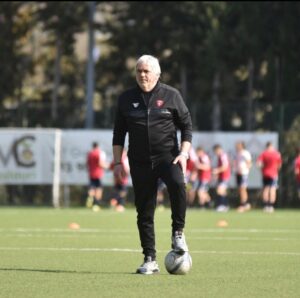Becoming a professional UEFA coach requires a combination of practical experience, formal education, and specific qualifications. The most recognized credential in this field is the UEFA coaching license, which ensures that coaches meet the high standards expected in professional football. This article from UEFA license Online outlines the various levels of UEFA coaching licenses and the qualifications required at each stage.
The Importance of a Coaching License
To ensure the quality and consistency of coaching across Europe, UEFA developed its own educational coaching courses. These courses are structured to gradually build a coach’s knowledge and skills, culminating in the prestigious UEFA Pro License.
UEFA License Pyramid
The pathway to becoming a fully qualified professional coach is structured in a pyramid format, starting from basic courses and advancing to the Pro License.
Coaching Basics Course
- This introductory course is mandatory and consists of a few lectures covering fundamental concepts.
UEFA C License
- The first formal coaching license, allowing coaches to work with lower-tier teams, typically in tier 6 and below.
UEFA B License
- This license enables coaches to lead teams up to tier 4 and serve as assistant coaches for tier 2 teams and below. It focuses on specific techniques such as passing, shooting, and first touch, as well as individual, group, and team tactics.
UEFA Youth Award License
- Candidates must hold a UEFA B License to apply. This qualification covers physical, social, and psychological aspects of youth coaching and is required for coaching youth teams at professional clubs and national teams.
UEFA A License
- This advanced license allows coaches to manage all professional teams within a given association. It emphasizes defensive, offensive, and transitional game strategies, and how to design practical sessions for 9- and 11-a-side games.
UEFA Pro License
- The pinnacle of coaching qualifications, the Pro License allows holders to manage any team in any association. The course focuses on overall team management, performance control, and role assignments within the team.
Course Content and Duration
- Level 1: Basic football knowledge, delivered through a short induction course.
- UEFA C License: Takes approximately three months to complete and covers coaching senior, youth, and children’s teams.
- UEFA B License: Duration varies from 6 to 18 months, depending on the association, and delves into technical and tactical training.
- Youth Award License: Focuses on youth-specific coaching elements and requires prior completion of the UEFA B License.
- UEFA A License: Typically takes 6 to 18 months and involves advanced tactical studies.
- UEFA Pro License: Requires 18 months of training, focusing on comprehensive team management.
Maintaining Your License
Coaches must update their highest level license every three years. This process is relatively straightforward and ensures that coaches stay current with the latest coaching methodologies and standards.
The Global Impact of UEFA Licenses
UEFA’s decision to standardize coaching qualifications has significantly improved the quality of coaches in Europe. Other football confederations also recognize the high standards of UEFA licenses, often valuing them more than their own qualifications.
Is a UEFA License Enough?
While a UEFA license is highly valuable, it may not be sufficient on its own to secure a coaching position. Former professional players often find it easier to transition into coaching roles. Additionally, networking and mentorship from established coaches can greatly enhance career prospects. For those coaching outside Europe, a UEFA license is often considered more prestigious, increasing employment opportunities.
In summary, obtaining a UEFA coaching license is a rigorous process that equips aspiring coaches with the necessary skills and knowledge to succeed in professional football. However, practical experience, networking, and continuous professional development are also crucial components of a successful coaching career.

